In the evening, tired mind and body often seek food as a solace, leading to evening overeating becoming a common problem.
In the long run, such unhealthy eating habits can not only affect weight management, but also lead to a host of health problems, such as unstable blood sugar and heart disease.
Therefore, it is important to find effective ways to deal with overeating in the evening.

So how can you avoid evening overeating?
If you can’t resist eating at night, especially the later you go to bed, the more you eat at night, and the habit and dependency will form. To break this cycle, here are four ways to do it.

1. Eat regular, balanced meals
Develop a good habit of eating three meals a day on time, following: eat well in the morning, eat full at noon, and eat less in the evening.
Breakfast should eat some high nutrition, less and refined food; Lunch more staple food, add multi-grain, more vegetables; Dinner do not eat too late, can properly eat some light, easy to digest food; Eat as little as possible at night, or only eat a small amount of light, low calorie, high protein healthy food.
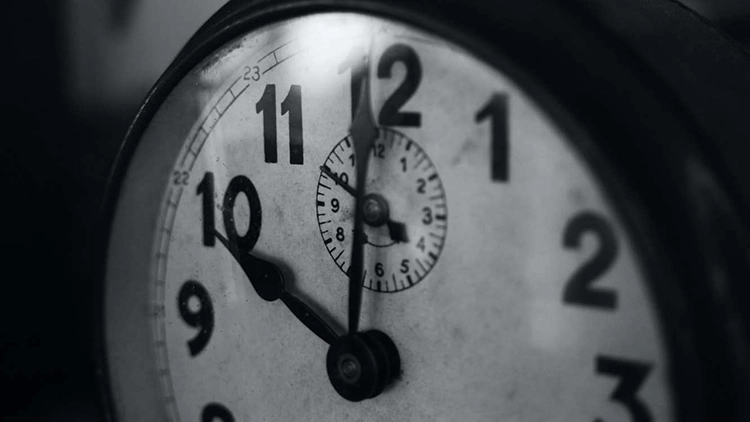
2. Go to sleep between 22 and 23
Researchers from the University of Oxford and the University of Exeter found that the best “bedtime” to prevent cardiovascular disease is between 22 and 23, and going to bed too early and going to bed too late are not good for your health.
Do not do anything unrelated to sleep in bed before going to bed, such as playing mobile phones, eating, watching TV and so on. Some calming and relaxing activities can be done, such as abdominal breathing relaxation, imaginary relaxation, progressive muscle relaxation, meditation, etc.
If you really want to stop eating at night, the most fundamental thing to do is to adjust your sleep schedule and go to bed earlier. The problem is that many people now sleep very late, too late, do not stay up late, eat three meals on time for modern humans, it is not easy to do.

3. Enrich your spare time and manage stress
If you have anxiety, depression and other bad emotions in your study, work and life, you can try to correctly recognize the pressure and adjust your mind flexibly. Developing personal hobbies, doing more things you like, and enriching your spare time will also make people feel comfortable.
You can also remember more things that have a sense of accomplishment in the past, happy things, watch more happy entertainment programs, and forget the current troubles.

4. Go outdoors, get more sun and exercise moderately
Sun exposure can promote blood circulation, regulate the central nervous system, and make people feel comfortable. Being outside can also make people feel open and relieved. The vast nature, the beautiful scenery, can not help but immerse in, feel refreshed.
The dopamine, endorphins and adrenal hormones released during exercise are all beneficial for relieving stress and regulating mood. Moderate intensity exercise can also help you sleep.

You can do more hiking, camping, cycling, boating or playing frisbee, flying kites and various ball games with your family and friends, because if you exercise together, you can also have pleasant cooperation, communication and interaction with others, and further relieve psychological pressure.
In addition to the four methods mentioned above, understanding the reasons why we tend to get hungry in the evening can also help to avoid overeating at night.
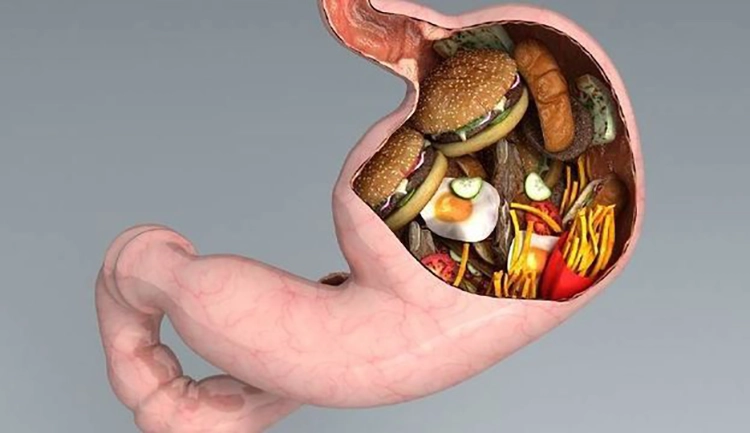
There are five possible reasons why we tend to get hungry at night
1. Your stomach empties by 10pm, so hunger is natural
One simple reason why you get hungry at night is that your stomach only has four to six hours to empty.
For example, if you have breakfast at 8am, it is fine to have lunch at 12pm, and you start to feel hungry at 4pm, it is reasonable to have afternoon tea and a small amount of food.
So, we eat dinner at 6 ~ 7 PM, then after 10 ~ 11 PM, if you have not fallen asleep, the stomach is about to empty, and you begin to feel hungry and want to eat something to fill the stomach, which is indeed a normal physiological reaction.
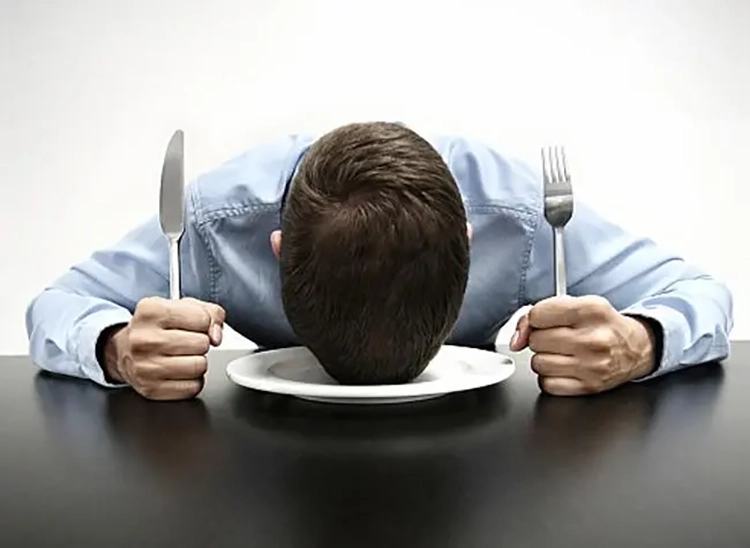
2. The peak of appetite does appear in the night before going to bed
A study published in the journal Obesity in 2013 by Frank Sheer and others at Harvard called “The internal body clock increases hunger and appetite in the evening, independent of food intake and other behaviors,” offered a new perspective on why you tend to feel hungry at night. It tells us that the internal clock does indeed increase hunger and appetite at night.
The researchers said that because people are generally awake during the day, they need to expend more energy to support daily activities and thinking; At night, when the body is at rest again, sleep also suppresses appetite, the researchers said. So neither of these times is when appetite is at its peak. The peak of appetite occurs in the middle of these two periods, in the evening before bedtime.
![(Hunger peaks at 8 PM and peaks at 8 am. [1])](https://czq-qzc.com/wp-content/uploads/2024/09/Hunger-peaks-at-8-PM-and-peaks-at-8-am.-1-.webp)
Participants in the study, on a fully regulated diet, felt hungriest in the evening; The hunger peak occurred at 8 p.m. and the hunger trough occurred at 8 a.m. The subjects also craved more sweet, salty and starchy foods in the evening than they did during the day. In other words, the body’s innate circadian rhythm dictates that we are hungriest at night.

A previous study published in the journal Science in 2010, “Circadian Integration of Metabolism and Energetics,” explained the physiological mechanism by which circadian rhythms affect appetite, showing that levels of Ghrelin, the meal-signaling hormone, increase during the night before bed. By activating nerve cells in the hypothalamus associated with energy metabolism, allowing the nervous system to regulate eating behavior.

3. Eat too little during the day and binge eat at night
In addition, it is easy to get hungry at night, which is also related to some people’s irregular eating habits.
Many people are busy with work, so they skip breakfast or eat a few snacks in the morning, and also eat a hurried lunch. When they finally get home from work at night, they just want to swipe their mobile phones. When it was late at night, I felt hungry. At this time, I just want to eat frantically. And they only want to eat barbecue, fried chicken, fried noodles, pizza, desserts, and drinks that are high in oil, sugar, and refined carbohydrates.
Because they only take a small amount to eat, the glucose (blood sugar) level in the blood rises quickly, allowing the brain to feel satisfied quickly. The body then goes on a feeding frenzy, driven by hunger, until it is full.

4. A bad mood can also lead to nighttime comfort eating
A 2022 study published in Physiology & Behavior on timing differences in appetite and gut hormone responses to diet and stress challenges in normal-weight and obese adults found that psychological conditions can affect appetite and food intake.
A total of 32 participants were divided into normal weight and overweight groups of 16, and the results showed that participants in both groups were at risk for nighttime overeating when they were in a high stress state.

Why do people eat large amounts of food at night when they are stressed? Many studies have proved that food has the function of calming people’s negative emotions. People tend to eat when they are in a bad mood, anxious or irritable, even though they are not hungry at that time. This is called comfort eating or emotional eating.
Eating at night is more likely to lead to emotional eating than eating during the day. In many cases, people eat at night to relieve the emotional effects of the day, to distract themselves, or to try to feel good.
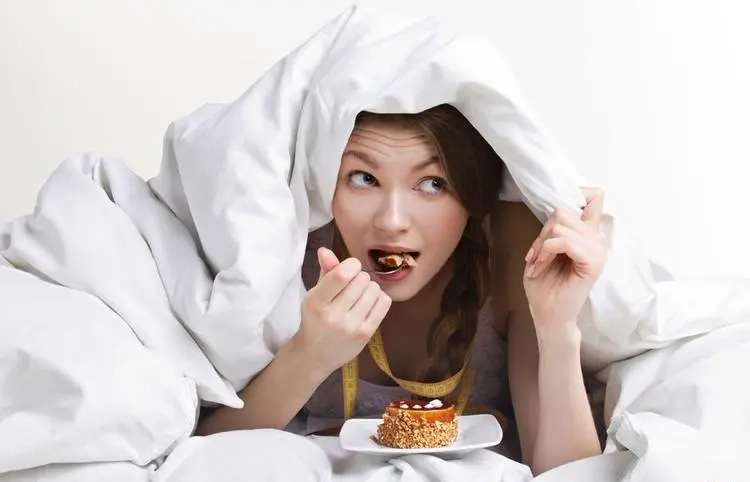
5. You may have ‘Night Eating syndrome’
Another type of impulse eating that is difficult to control at night is an eating disorder called nocturnal eating syndrome (NES). Night eating affects about 1.5 percent of the general population in the United States, and up to 50 percent of people with obesity and diabetes.
People with “night eating disorder” have a strong appetite at night, manifested as no appetite for breakfast and lunch, and in the period from dinner to bedtime, or after waking up in the middle of the night, the rise of a strong appetite, and can not be suppressed, do not eat can not sleep.
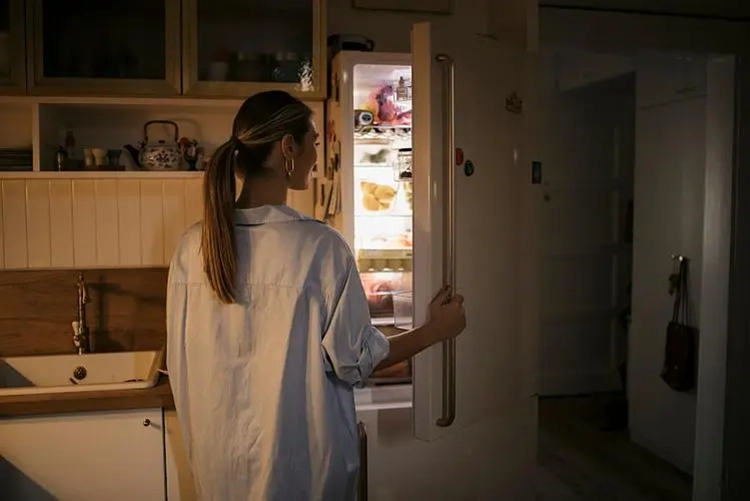
The cause of night eating disorder is unknown, but research suggests it is linked to genetics, neurobiology and psychological processes. And it can get worse in times of mental stress, with a tendency to eat to help calm the mood, relieve stress, and improve sleep.
Night eating patients are often accompanied by sleep problems, the body’s circadian rhythm may be disrupted, which will also cause hormone secretion disorders, and then lead to a series of health problems, such as gastrointestinal dysfunction, peptic ulcer and other diseases.

References:
[1]Scheer, F. A. “. L., Morris, C. “., & Shea, S. A. (2013). The internal circadianclock increases hunger and appetite in the evening independent of food in-take and other behaviors. Obesity, 21(3),421-423.
[2] Bass, “, & Takahashi, “. S. (2010). Circadian Integration of Metabolism andEnergetics. Science, 330 (6009), 1349-1354.
[3]Carnell, S., Papantoni, A., Grillot, C. L., Ungredda, T., Ellis, s., Mehta, N., .. 8 Geliebter, A. (2022). Time of day differences in appetite and gut hormoneresponses to meal and stress challenges in adults with normal-weight andobesity. Physiology & Behavior, 254,113890.

